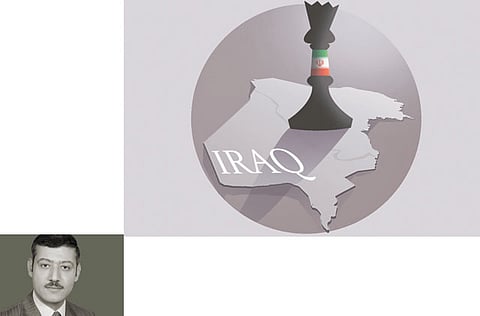Iraq could slide back into civil war
Al Maliki's actions seem to align with Iran's strategic interest in consolidating Shiite control in the country

The arrest warrant, issued by the Interpol at the request of the Shiite-dominated Iraqi government, against Iraqi vice-president and prominent Sunni leader Tareq Al Hashemi is seen by many in the region as a recipe for a another bloody civil war in Iraq. It is also interpreted as a further demonstration of how influential Iran has become in Iraqi politics.
On the eve of the US withdrawal from Iraq at the end of last year, Iran and its local allies, rushed to exploit the vacuum Washington left behind and consolidate their influence in Iraq. Iran seems determined not to miss a historic opportunity to turn Iraq from a long-time regional foe into a junior ally. Should this happen, and it is in fact happening, Iran would then be able both to secure its western flank and use Iraq as a base from which to project influence in the wider Arab world. This would come only if Iran's foes in Iraq are purged and its friends are made powerful enough to rule Iraq unchallenged.
Leading these efforts is pro-Iran Prime Minister of Iraq Nouri Al Maliki, who is increasingly becoming an authoritarian leader. Ever since he became prime minister in 2006, Al Maliki has been working to consolidate his power inside the army, the security forces, and intelligence services, mostly through purges and through the creation of loyal parallel security agencies. When he returned to the premiership in 2010, following nearly a year of intense political wrangling over electoral results, Al Maliki accelerated these efforts to establish full control over the political, security and economic affairs of the country. The makeup of the current cabinet clearly illustrates Al Maliki's prowess; he holds the positions of acting defence minister, interior minister and minister of state for national security. But in order for Al Maliki to effectively wield his influence in each of these arenas, he needed to remove whatever tenuous influence Iraq's Sunnis maintain.
Following the fall of Saddam Husain's regime in 2003, Iraqi Sunnis chose to resist the change brought by the US invasion. They boycotted the 2005 parliamentary elections and opted for armed resistance against the US occupation and the puppet government it installed in Baghdad. By doing so, they have effectively allowed Shiite factions to garner disproportionate power in parliament. When Sunnis tried to re-enter the political scene in 2010, they did so under the banner of Al Iraqiya, a centrist political bloc with heavy Sunni representation. Though Al Iraqiya won the largest number of seats in the 2010 elections, Al Maliki and his Shiite allies manoeuvred to deny it an electoral victory. In the early stages of its formation the government half-heartedly promised Al Iraqiya various appeasements, but it did not take Al Maliki long to begin purging the government of Sunni power. He refused to integrate Sunni Awakening Council members into the security apparatus and used the Shiite-led Justice and Accountability Commission as a vehicle for targeting Sunnis and former Baathists.
Fierce response
The Sunnis, who have no energy assets or autonomous territory, tried to loosen Baghdad's grip with their own autonomy drive — first in the mainly Sunni Anbar and Salahuddin provinces and then in the more ethnically mixed Diyala province. The autonomy push in Diyala province came about through Sunni-Kurdish collaboration. This gave some indication that the Sunnis and Kurds were finding reasons to align against a more significant Shiite threat.
Al Maliki's response was fast and fierce, however. He declared the province's proclamation illegal and launched a major political offensive against high-level Sunni officials. He urged parliament to pass a vote of no-confidence against Sunni Deputy Prime Minister Saleh Al Mutlaq, who described Al Maliki in an interview as "worse than Saddam Hussain". At the same day, Al Hashemi was escorted off a plane at the Baghdad airport and two of his bodyguards were detained on terrorism charges. Al Hashemi was permitted to fly to Iraqi Kurdistan, but an arrest warrant was issued against him alleging that he had commissioned assassinations of Iraqi political and security officials, including a plot against Al Maliki himself.
Iran's position is crucial to the outcome of this crisis. Al Maliki may have strong political ambitions of his own, but his actions clearly align with Iran's strategic interest in consolidating Shiite control in Iraq. With Iran emerging as the most influential foreign power in Iraqi politics, Sunni Arab countries, particularly in the Gulf, fear that Iran might just be about to reshape the political map of the region in its favour. This will force them to do whatever it takes to prevent this probability. Al Maliki's sectarian policies along with the increasing polarisation between the two banks of the Gulf — Arab and Persian — Iraq might very well slide back to a full-fledged civil war that would be incomparable with the 2006-2007conflict.
Dr Marwan Kabalan is the dean of the Faculty of International Relations and Diplomacy at the University of Kalamoon.


